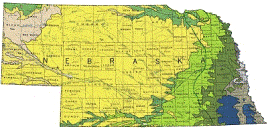United States Geological Survey

United States Geological Survey: Staff Publications
Document Type
Article
Date of this Version
2011
Citation
U.S. government works are not subject to copyright.
Abstract
The value of information is a general and broadly applicable concept that has been used for several decades to aid in making decisions in the face of uncertainty. Yet there are relatively few examples of its use in ecology and natural resources management, and almost none that are framed in terms of the future impacts of management decisions. In this paper we discuss the value of information in a context of adaptive management, in which actions are taken sequentially over a time frame and both future resource conditions and residual uncertainties about resource responses are taken into account. Our objective is to derive the value of reducing or eliminating uncertainty in adaptive decision making. We describe several measures of the value of information, with each based on management objectives that are appropriate for adaptive management. We highlight some mathematical properties of these measures, discuss their geometries, and illustrate them with an example in natural resources management. Accounting for the value of information can help to inform decisions about whether and how much to monitor resource conditions through time.
Included in
Geology Commons, Oceanography and Atmospheric Sciences and Meteorology Commons, Other Earth Sciences Commons, Other Environmental Sciences Commons


Comments
Ecological Modelling 222 (2011) 3429– 3436